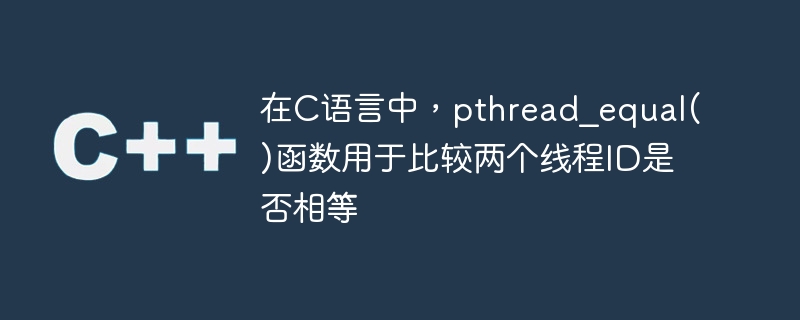
pthread_equal()函数用于检查两个线程是否相等。它返回0或非零值。对于相等的线程,它将返回非零值,否则返回0。该函数的语法如下:
int pthread_equal (pthread_t th1, pthread_t th2);
现在让我们看看 pthread_equal() 的实际作用。第一种情况,我们会检查自线程来检查结果。
示例
#include#include #include #include #include pthread_t sample_thread; void* my_thread_function(void* p) { if (pthread_equal(sample_thread, pthread_self())) { //pthread_self will return current thread id printf("Threads are equal "); } else { printf("Threads are not equal
"); } } main() { pthread_t th1; sample_thread = th1; //assign the thread th1 to another thread object pthread_create(&th1, NULL, my_thread_function, NULL); //create a thread using my thread function pthread_join(th1, NULL); //wait for joining the thread with the main thread }
输出
Threads are equal
现在,如果我们在两个不同的线程之间进行比较,我们将看到结果。
示例
#include#include #include #include #include pthread_t sample_thread; void* my_thread_function1(void* ptr) { sample_thread = pthread_self(); //assign the id of the thread 1 } void* my_thread_function2(void* p) { if (pthread_equal(sample_thread, pthread_self())) { //pthread_self will return current thread id printf("Threads are equal "); } else { printf("Threads are not equal
"); } } main() { pthread_t th1, th2; pthread_create(&th1, NULL, my_thread_function1, NULL); //create a thread using my_thread_function1 pthread_create(&th1, NULL, my_thread_function2, NULL); //create a thread using my_thread_function2 pthread_join(th1, NULL); //wait for joining the thread with the main thread pthread_join(th2, NULL); }
输出
Threads are not equal































